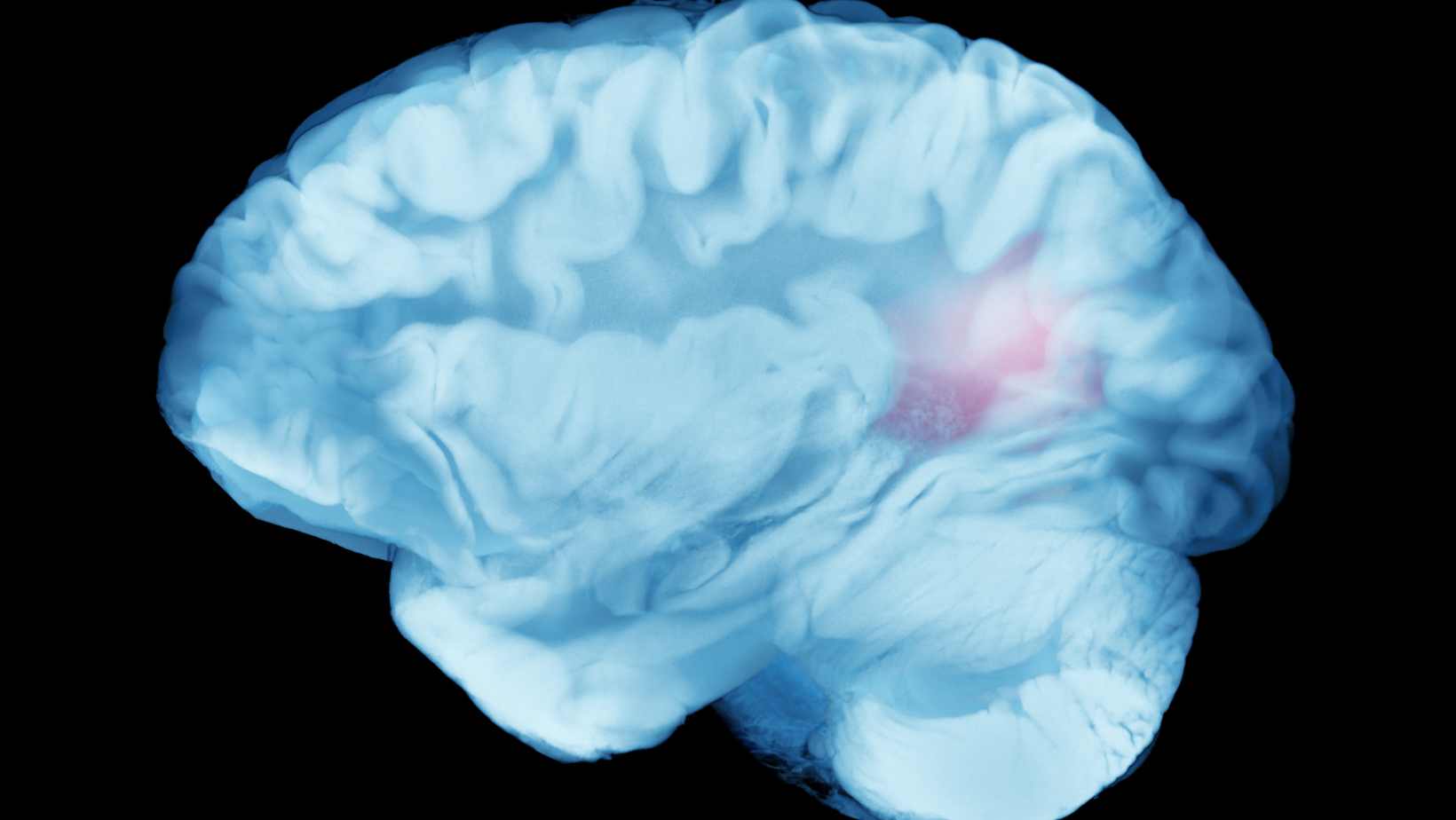Ever wondered why you forget things more often when you’re stressed out? Or why your head starts pounding after a long, tense day? You’re not alone. Every day, millions ask themselves: can stress cause neurological disorders? If you’re someone who’s always anxious, overworked, or emotionally drained, you might already be feeling it in your brain.
In this blog, we will answer the big question, can stress cause neurological disorders, by breaking down the real science, symptoms, and solutions behind stress’s effect on your brain. You’ll understand how stress can go from a mental strain to a physical brain condition. Let’s get to the truth.
Table of Contents
ToggleWhat is Stress?
Stress is your body’s reaction to a challenge or threat. It activates your nervous system and triggers the release of hormones like cortisol and adrenaline. In short bursts, this stress response is helpful. But when it becomes chronic (long-lasting), it can cause harm, especially to your brain.
What Happens to the Brain When You’re Under Stress?
When stress hits, your brain goes on high alert. It’s like an emergency alarm going off. Your body jumps into survival mode, also called the “fight or flight” response. But what really happens inside your brain?
Stress activates your amygdala, the brain’s fear center. It alerts your hypothalamus, which then releases cortisol, the body’s main stress hormone. This chain reaction is normal for short-term stress. But if stress stays for long, your brain starts to change.
Short-term stress can actually sharpen focus. But when stress becomes constant, it causes lasting changes. Brain MRI studies show that people who suffer chronic stress often have reduced grey matter. Grey matter is critical for memory, decision-making, and learning.
According to a 2018 Harvard study, long-term stress can shrink your prefrontal cortex, the part of your brain that controls focus and memory.
| Brain Part | Role | Effect of Chronic Stress |
|---|---|---|
| Amygdala | Processes fear and emotions | Becomes overactive, making you anxious |
| Hypothalamus | Triggers hormone response | Releases cortisol, disrupts balance |
| Prefrontal Cortex | Handles decision-making and memory | Shrinks under chronic stress |
Can Stress Cause Neurological Disorders Directly or Indirectly?
The key question is right here—can stress cause neurological disorders? The answer lies in how our body separates emotional stress from physical damage.
Psychological stress feels emotional. But when it becomes chronic, it turns into a physical burden. It triggers neuroinflammation—a harmful swelling in the brain—and also causes oxidative stress, which damages nerves.
So yes, stress may not always cause a disorder directly, but it definitely helps one grow silently. It’s both a trigger and a contributor.
Let’s break it down:
- Psychological vs Neurological: Emotional stress begins in your mind, but long-term stress creates actual brain and nerve damage.
- Neuroinflammation: Long-term stress causes your immune system to act up and attack your own brain tissue.
- Oxidative Stress: Excess cortisol releases harmful molecules that attack nerve cells.
- Nerve Damage: Chronic stress ruins the protective layer around nerves, making them weak and slow.
So when we ask, can stress cause neurological disorders, the answer is: directly, sometimes yes. Indirectly, almost always.
Neurological Disorders That May Be Linked to Stress
Let’s look at some common neurological and psychiatric conditions where stress can play a major part:
1. Anxiety Disorders
Chronic stress is one of the top triggers for anxiety. It affects the brain’s fear center (the amygdala) and causes symptoms like worry, racing thoughts, and panic attacks.
2. Depression
Stress can lower serotonin and dopamine—brain chemicals that regulate mood. Over time, this can lead to low energy, sadness, and a loss of interest in life.
3. Post-Traumatic Stress Disorder (PTSD)
Trauma-related stress can change how the brain works, leading to flashbacks, nightmares, and constant tension.
4. Migraines and Headaches

Stress is a major cause of chronic migraines and tension headaches. It increases muscle tension and pain sensitivity in the nervous system.
- Stress raises cortisol and lowers serotonin, leading to head pain.
- Blood vessels in the brain tighten, then release suddenly, causing sharp, throbbing pain.
- Sleep gets disrupted, triggering a migraine loop.
According to WHO, more than 70% of migraine patients report stress as a top trigger.
5. Epilepsy and Seizures

Stress may not cause epilepsy, but it can definitely worsen it or mimic it.
- Psychogenic non-epileptic seizures (PNES) look like seizures but are caused by extreme emotional stress.
- In patients with epilepsy, stress increases the chance of seizures by disrupting the brain’s electrical balance.
It affects the brain’s electrical activity, making it more unstable.
6. Multiple Sclerosis (MS)
Stress may not cause MS, but studies show it can trigger flare-ups in people who already have the disease.
How Does Stress Damage the Brain?
High Cortisol Levels
Too much cortisol damages the hippocampus , a part of the brain that helps you learn and remember. It also shrinks the prefrontal cortex , which controls decision-making and behavior.
Inflammation
Chronic stress causes inflammation in the brain. This can make existing neurological issues worse and is linked to conditions like Alzheimer’s disease .
Neurotransmitter Imbalance
Stress affects brain chemicals like serotonin and dopamine . These imbalances are behind many mood disorders and can also interfere with sleep, memory, and focus.
Can Stress Trigger Existing Neurological Disorders?
Yes. If you already have a neurological condition, stress can make symptoms worse or trigger flare-ups. For example:
- In MS , stress may increase inflammation in the central nervous system.
- For people with dementia , stress can worsen confusion and memory loss.
- If you suffer from chronic migraines , stress can increase how often they happen.
Is There a Genetic Link?
Some people are more vulnerable to the effects of stress. If your family has a history of mental illness or neurological disorders, your brain may react more strongly to stress. This can increase your chances of developing related conditions.
What Are the Signs That Stress is Affecting Your Nervous System?
Stress doesn’t always show up as panic. Sometimes it looks like:
- Brain fog or confusion
- Tingling or numbness in hands/feet
- Dizziness or spinning sensations
- Sudden memory blanks
- Fatigue with no reason
You must learn to spot the difference between stress, anxiety, and actual nerve issues.
| Symptom | Stress | Anxiety | Neurological Disorder |
| Brain fog | ✓ | ✓ | ✓ |
| Numbness | ✗ | ✗ | ✓ |
| Panic attacks | ✗ | ✓ | ✗ |
| Weakness | ✓ | ✗ | ✓ |
If these symptoms last beyond a few weeks or affect daily life, it’s time to see a doctor.
How Can You Protect Your Brain from the Effects of Stress?
The good news? You can actually reverse a lot of the damage stress causes to the brain. Start early.
What Lifestyle Changes Reduce the Risk of Neurological Damage from Stress?
A few simple changes can protect your brain.
- Daily walks lower cortisol brain effects.
- Meditation calms the amygdala.
- Good sleep helps restore brain cells.
- Eat foods rich in omega-3s, turmeric, leafy greens.
- Cut down sugar and processed food.
Deep breathing for 10 minutes a day has been shown to reduce cortisol by 20%.
Can Therapy or Counseling Help Prevent Neurological Damage?
Yes, therapy is not just emotional, it can be brain-saving.
- CBT teaches your brain to handle stress better.
- Counseling reduces stress and improves sleep.
- Some patients with stress-induced memory loss showed complete recovery after therapy.
A patient at our clinic reversed early signs of neurological symptoms caused by stress just with therapy and lifestyle changes.
When Should You See a Neurologist for Stress-Related Symptoms?
If stress goes on for too long, it might turn into something more serious. You should see a neurologist for stress-related symptoms if you notice:
- Numbness or tingling in limbs
- Brain fog lasting more than a week
- Sudden memory problems
- Muscle weakness or twitching
- Dizziness or balance issues
Neurologists may recommend:
- MRI: to check brain changes
- EEG: to rule out seizures
- EMG: to test nerve function
The earlier you catch it, the easier it is to treat. Don’t wait.
Need Expert Help? Don’t Ignore the Brain’s Warning Signs
Stress isn’t just a bad mood, it could be a warning sign of real nervous system damage. If you’ve had symptoms like dizziness, memory loss, tingling, or brain fog that won’t go away, your brain may be crying out for help.
If you’ve been wondering, can stress cause neurological disorders, the answer is clear, it can. But it doesn’t have to. Early help can stop the damage in its tracks.
Book a consultation with Dr. Chandril Chugh today to protect your brain and nerves before it’s too late.
FAQ: Can Stress Cause Neurological Disorders?
What is the relationship between stress and neurological disorders?
Chronic stress increases inflammation, damages brain cells, and affects neurotransmitters. It can contribute to disorders like anxiety, depression, and migraines.
Can stress trigger a neurological condition I already have?
Yes. Stress can worsen symptoms of conditions like epilepsy, MS, dementia, and more.
How does cortisol affect the brain?
High cortisol levels shrink parts of the brain, impair memory, and reduce learning ability.
Can stress cause long-term brain damage?
Long-term stress may not directly damage the brain, but it increases the risk of cognitive decline and neurological problems.
How can I protect my brain from stress-related damage?
Regular exercise, good sleep, mindfulness, and professional support are key. Also, focus on a brain-healthy diet and stay connected socially.

Dr Chandril Chugh
Dr. Chandril Chugh, a renowned American Board-Certified Neurologist, is just a click away. With years of global experience, he offers trusted neurological guidance online.
→ Book a consultation to discover which remedies suit your needs best.








